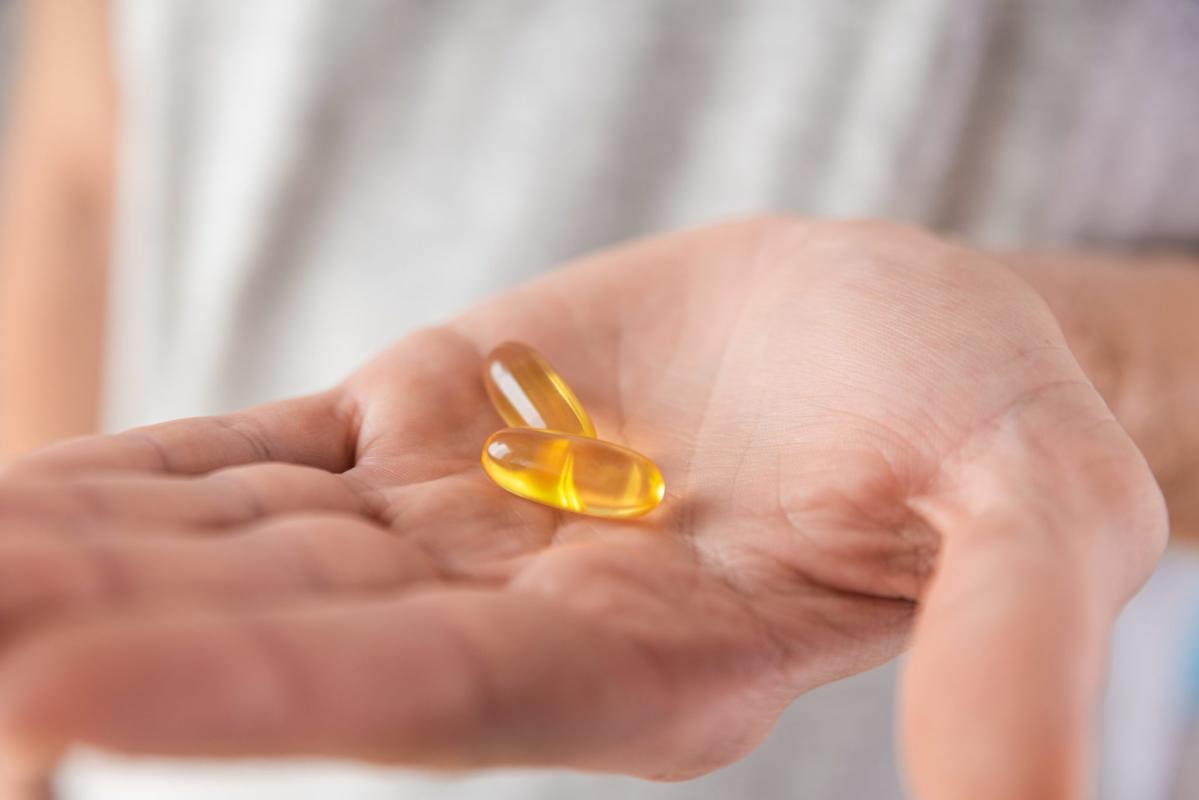You might’ve heard that vitamin D can be crucial for bone health, and that taking supplements may be in order if you’re not getting enough naturally from sunlight or from D-rich foods like eggs, oily fish, or fortified milks.
You’ve maybe even heard that vitamin D has been shown to improve cognitive function and to lower the risk of heart attack.
It may come as welcome news to learn that vitamin D could also heighten your energy levels.
That makes sense, since, according to the Cleveland Clinic, some of the top symptoms of vitamin D deficiency in adults are fatigue, muscle weakness, and low mood, which can lead to feeling down and exhausted.
What is vitamin D?
Vitamin D, also referred to as calciferol, is a fat-soluble vitamin available in foods, either naturally or through fortification, and through supplements, according to the National Institutes of Health Office of Dietary Supplements. It is also produced within the body’s cells when ultraviolet (UV) rays from sunlight hit the skin, triggering vitamin D synthesis.
No matter what the source, though, vitamin D must be activated within the body—first through the liver, which converts vitamin D to calcidiol, and then in the kidney, which forms what’s known as calcitriol.
Once activated, vitamin D promotes calcium absorption in the gut, prevents muscle cramps and spasms, and leads to healthy bone growth.
Vitamin D also plays a role in reducing inflammation, immune function, and glucose metabolism.
What does science say about vitamin D and energy?
A fair amount of research backs the idea that vitamin D may help put some pep in your step.
A study published in the journal Medicine compared the results of two groups with fatigue and vitamin D deficiency—one of which was given vitamin D supplements, the other a placebo. In just four weeks, the group given vitamin D experienced significant improvements in energy levels.
Similarly, a small study out of the UK found vitamin D vital for making our muscles work efficiently and boosting energy levels. It showed that muscle function improves with vitamin D supplements, suggesting that fatigue could be due to “reduced efficiency of the mitochondria: the ‘power stations’ within each cell of the body.”
One study of soccer players found a link between vitamin D and improved athletic performance; another found vitamin D improved the energy levels of recent kidney transplant patients. Researchers have even linked vitamin D insufficiency to the chronic fatigue of fibromyalgia, and with fatigue and weakness in pre-menopausal women.
Do I need a vitamin D supplement?
Before rushing to take D supplements, experts recommend seeing your doctor to test for vitamin deficiencies and to rule out other conditions.
“If someone is dealing with low energy, my initial response would be to recommend a series of tests before considering supplements,” Dr. Elizabeth Sharp, internist and medical director at Health Meets Wellness in New York City, previously told Fortune. “Testing for vitamin deficiencies, such as vitamin D and vitamin B12, especially in vegetarians, is crucial. Additionally, I would screen for thyroid disorders if other symptoms suggest such a condition, and I would also rule out anemia and iron deficiency. It’s important to identify the underlying cause accurately to ensure appropriate and effective treatment.”
Experts caution that a supplement is unlikely to help if you’re not deficient in a nutrient. Still, notes a Harvard newsletter, “It’s very hard to get the vitamin D you need from your diet; oily fish and fortified dairy products are the only important sources.” An analysis of 2013-2016 National Health and Nutrition Examination Survey (NHANES) data showed that 92% of men, more than 97% of women ingested insufficient amounts of vitamin D daily from food and beverages. So supplements likely make sense for most adults.
Once vitamin D supplements are determined to be appropriate, exercise caution when making your purchase.
“Be wary of supplements that are far cheaper than the rest or look like a good deal,” Jolene Brighten, naturopathic endocrinologist and author of Is This Normal?, previously told Fortune. “Often these are using poor quality ingredients and in some cases, because they are not regulated, they won’t actually have what the label lists.”
Consumers may want to consult the National Institutes of Health [Office of Dietary Supplements] as well as subscription-based sources, such as Consumer Lab, which looks into issues ranging from possible contaminants to making sure a supplement contains what it claims to.
How much vitamin D do you need?
Recommended daily intake for adults up to age 70 is 600 IU and 800 IU for adults over 70, according to the NIH. Brighten adds, “it is also important to be getting enough sunlight.” She also underscores the importance of testing D levels to help determine what you need.
Don’t overdo it on supplements, caution experts. Taking too much vitamin D can be toxic in rare cases, as with an 89-year-old UK man who died in March in part from vitamin D toxicity (though he did have several underlying conditions).
Further, notes the Office of Dietary Supplements, vitamin D can interact poorly with some medications, including statins and steroids, so be sure to discuss with your doctor.
More on nutrition and supplements:
This story was originally featured on Fortune.com

